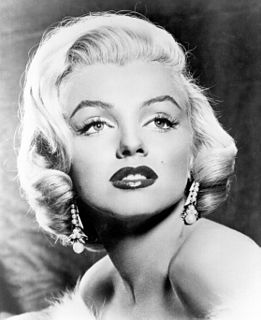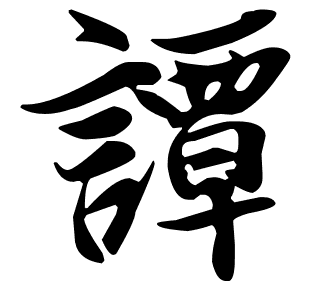A patronymic, or patronym, is a component of a personal name based on the given name of one's father, grandfather (avonymic), or an earlier male ancestor. A component of a name based on the name of one's mother or a female ancestor is a matronymic. A name based on the name of one's child is a teknonymic or paedonymic. Each is a means of conveying lineage.

A stage name is a pseudonym used by performers and entertainers such as actors, comedians, singers, and musicians. Such titles are adopted for a wide variety of reasons, and may be similar or nearly identical to an individual's birth name. In some situations, though not often, a performer will adopt their title as a legal name. Nicknames and maiden names are sometimes used in person's professional name.
Chinese surnames are used by Han Chinese and Sinicized ethnic groups in China, Taiwan, Korea, Vietnam, and among overseas Chinese communities around the world such as Singapore and Malaysia. Chinese surnames are given first for names written in Chinese, which is the opposite of Western naming convention where surnames come last. Around 2,000 Han Chinese surnames are currently in use, but the great proportion of Han Chinese people use only a relatively small number of these surnames; 19 surnames are used by around half of the Han Chinese people, while 100 surnames are used by around 87% of the population. A report in 2019 gives the most common Chinese surnames as Wang and Li, each shared by over 100 million people in China, with Zhang, Liu, Chen, Yang, Huang, Zhao, Wu and Zhou making up the rest of the ten most common Chinese names.

In some cultures, a surname, family name, or last name is the portion of one's personal name that indicates their family, tribe or community.

Zhang is third most common surname in China and one of the most common surnames in the world. Zhang is the pinyin romanization of the very common Chinese surname written 张 in simplified characters and 張 in traditional characters. It is spoken in the first tone: Zhāng. It is a surname that exists in many languages and cultures, corresponding to the surname 'Archer' in English for example. Chang is the Wade-Giles romanization; Cheung is commonly used in Hong Kong as romanization.

Chen is a common East Asian surname and one of the most common surnames in the world. It is the most common surname in Taiwan (2010) and Singapore (2000). Chen is also the most common family name in Guangdong, Zhejiang, Fujian, Macau, and Hong Kong. It is the most common surname in Xiamen, the ancestral hometown of many overseas Hoklo.
Spanish naming customs are historical traditions that are practised in Spain for naming children. According to these customs, a person's name consists of a given name followed by two surnames. Historically, the first surname was the father's first surname, and the second the mother's first surname. In recent years, the order of the surnames in a family is decided when registering the first child, but the traditional order is still usually chosen. Often, the practice is to use one given name and the first surname most of the time ; the complete name is typically reserved for legal, formal, and documentary matters. Both surnames are sometimes systematically used when the first surname is very common to get a more customized name. In these cases, it is even common to use only the second surname, as in "Lorca", "Picasso" or "Zapatero". This does not affect alphabetization: "Lorca", the Spanish poet, must be alphabetized in an index under "García Lorca", not "Lorca" or "García".
The birth name is the name of the person given upon their birth. The term may be applied to the surname, the given name or to the entire name. Where births are required to be officially registered, the entire name entered onto a births register or birth certificate may by that fact alone become the person's legal name. The assumption in the Western world is often that the name from birth will persist to adulthood in the normal course of affairs—either throughout life or until marriage. Some possible changes concern middle names, diminutive forms, changes relating to parental status, and changes related to gender transition. Matters are very different in some cultures in which a birth name is for childhood only, rather than for life.
A Portuguese name is typically composed of one or two given names, and a number of family names. The first additional names are usually the mother's family surname(s) and the father's family surname(s). For practicality, usually only the last surname is used in formal greetings.
The Swampy Cree people, also known by their autonyms Néhinaw, Maskiki Wi Iniwak, Mushkekowuk,Maškékowak or Maskekon or by exonyms including West Main Cree,Lowland Cree, and Homeguard Cree, are a division of the Cree Nation occupying lands located in northern Manitoba, along the Saskatchewan River in northeastern Saskatchewan, along the shores of Hudson Bay and adjoining interior lands south and west as well territories along the shores of Hudson and James Bay in Ontario. They are geographically and to some extant culturally split into two main groupings, and therefore speak two dialects of the Swampy Cree language, which is a "n-dialect":

Tan is a common Chinese surname 譚.

Zhōu is the Hanyu Pinyin transliteration of the Chinese family name 周, which ranks as the 10th most common surname in Mainland China as of 2019. In 2013 it was found to be the 10th most common name, shared by 25,200,000 people or 1.900% of the population, with the province with the most being Hunan. Derived from the Zhou dynasty, it has been one of the ten most common surnames in China since the Yuan dynasty. It is the 5th name on the Hundred Family Surnames poem.

Connecticut wine refers to wine made from grapes and other fruit grown in the U.S. state of Connecticut. The modern wine industry in Connecticut began with the passage of the Connecticut Winery Act in 1978. The wineries in Connecticut are located throughout the state, including in the three designated American Viticultural Areas in the state. The climate in the coastal region near Long Island Sound and the Connecticut River valley tends to be warmer than the highlands in the eastern and western sides of the state.
Charlie Lytwyn is a Scottish former professional footballer who played as a forward.
Victoria-Kayen Woo is a Canadian artistic gymnast. She is the 2015 Pan American Games bronze medalist on balance beam and silver medalist with the team. She finished fourth with her team at the 2014 Commonwealth Games, and she competed at the 2014 World Championships and 2015 World Championships.
Nathan Gafuik is a Canadian gymnast, who has competed at two Summer Olympics and has won medals at Commonwealth level.

The Amazon Basin is a major 620,000 square kilometres (240,000 sq mi) large sedimentary basin located roughly at the middle and lower course of the Amazon River, south the Guiana Shield and north of the Central Brazilian Shield. It is bound to the west by the Púrus Arch, separating the Amazon Basin from the Solimões Basin and in the east by the Gurupá Arch, separating the basin from the Marajó Basin. The basin developed on a rift that originated possibly about 550 million years ago during the Cambrian. Parts of the rift were reactivated during the opening of the South Atlantic.
Kevin Lytwyn is a Canadian artistic gymnast. In 2015, he won the silver medal in the men's horizontal bar event at the 2015 Pan American Games held in Toronto, Canada.







